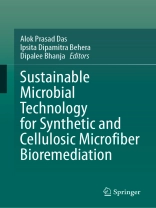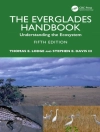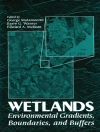This book offers a variety of cases that detail microbial technologies for remediation of microfiber pollution. Synthetic microfibers are made up of polypropylene, nylon, and polyethylene terephthalate. They are porous and dry which makes them ideal for cleaning, but wide use of synthetic microfibers across industries and the human population in general has led to the accumulation of microfiber wastes in both terrestrial and marine ecosystems.
Microfibers are a major environmental pollutant due to their endurance, omnipresence, and synthetic composition. Due to their undetectable size and wide distribution, microfibers slowly get incorporated within the food chain leading them into the higher trophic level. Microbial remediation of Synthetic microfibers through biodegradation is a sustainable and economic solution. With advanced bioremediation technology, novel methods have been developed for remediation, recovery, and recycling. Some of these methods are detailed in this volume.
สารบัญ
1 Sources of Synthetic Microfiber Pollutants in the Environment and Their Fate and Toxicity.- 2 Sources, Characteristics, Environmental Impact and Sustainable Remediation of Synthetic Microfiber.- 3 Discussing Sources and Biological-Chemical Remediation Approaches for Microplastic Pollution.- 4 Fate and Accumulation of Synthetic Microfibers in the Environment.- 5 Occurrence and Quantification of Tire Wear Plastics Pollutants from Highway City Dust of Bhubaneswar City of Odisha.- 6 Microplastics.- 7 Synthetic Microfibers.- 8 Impact of Synthetic Microfibers and Their Toxicity on the Environment.- 9 Water Contamination and Impacts of Synthetic Microfibers Pollutants to the Global Ecosystem.- 10 Application of Microorganisms in Emerging Waste Management Strategies and Remediation of Synthetic and Cellulosic Microfibers.- 11 Microbial Remediation of Microplastics and Integration into the Circular Economy.- 12 Microbial Bioremediation Technology for Sustainable Treatment and Management of Synthetic Microfiber Waste.- 13 Greener Technologies for Establishing Restraint over Microplastic Pollution.- 14 Degradation of Low-Density Polyethylene by Physical, Chemical, and Microbial-Based Approaches.
เกี่ยวกับผู้แต่ง
Dr. Alok Prasad Das is presently serving as Assistant Professor in Department of Life Sciences, Rama Devi Women’s University, Odisha India. Prior to that Dr. Alok was working as Assistant Professor in Department of Chemical and Polymer Engineering, Tripura Central University, Agartala, India. He is an academician, author of journal articles, several books, and book chapters and Editorial member of several reputed journals. He has more than 15 years of research experience. Dr. Das has been supported through various research grants from Department of Science and Technology and Department of Biotechnology, Government of India. His research and innovation work, done in national and international collaborations, has appeared in over 100 of publications; and his contributions have been recognized by several awards. His area of expertise includes Biological Wastewater treatment, Bioremediation based bioleaching of mining pollutants, Bioremediation of Microplastics and Microfiber Pollutants, Geomicrobiology of extreme habitats. His current Google Scholar: Citations is 3300 and h-index 32. Dr. Das is enlisted in world’s top 2% influential scientist as per the Stanford University list 2023.
Dr. Ipsita D Behera is presently serving as Assistant Professor, Department of Chemical Engineering, Indira Gandhi Institute of Technology, Saranga, Odisha, India. Dr. Ipsitas’s research is focused on development of bioremediation technology and process modernization in the area of petroleum waste management. She has published several research articles in leading and high impact journals of international repute. Academician, author of several Journal articles. More than 12 years of teaching experience. Area of expertise: Environmental pollution control, petroleum hydrocarbon pollution and its sustainable management.
Ms. Dipalee Bhanja is a Post Graduate scholar, with Environmental Biotechnology as a major research expertise. She is currently working at All India Institute of Medical Sciences, Bhubaneswar, Odisha, India. Her research is focused on biomedical pollution, its effect on the environment, its long term consequences and long term sustainable technologies for remediation of these pollutants. She has more than 8 years of experience. Area of expertise: biomedical pollution, control and its sustainable management.












